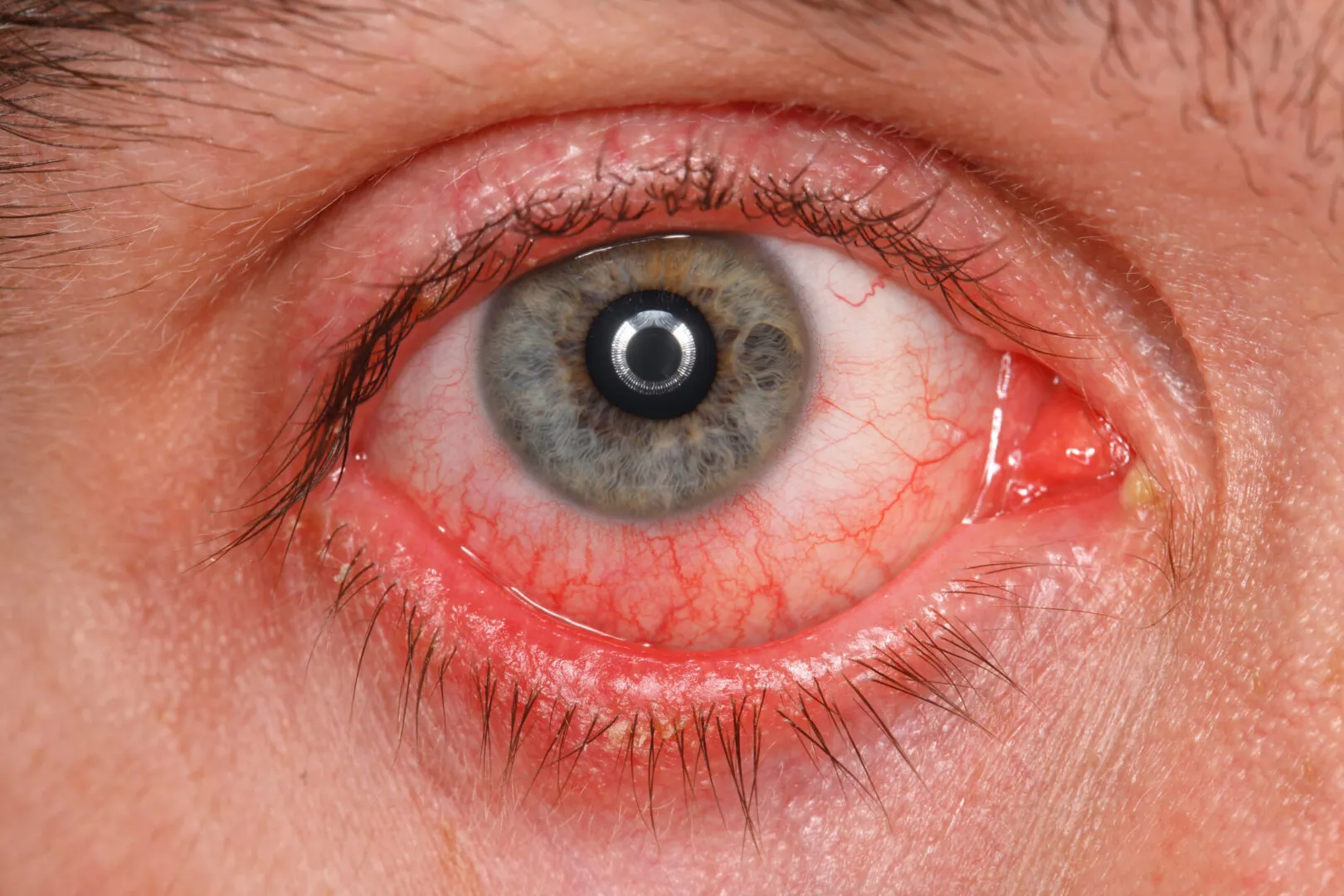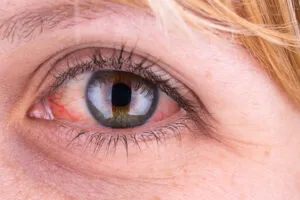Eye diseases
Conjuntivitis

What is conjunctivitis?
Conjunctivitis is a very common eye disease, both in children and adults, which is caused by inflammation of the conjunctiva.
This thin, transparent membrane, which covers the inside of the eyelids and the white part of the eye, is protected by the tear, which dilutes and helps eliminate germs and external irritants. However, sometimes this protection is not enough, and the conjunctiva becomes inflamed, its small blood vessels become more visible and the eye takes on a reddish appearance.
In the vast majority of cases, conjunctivitis does not pose a serious threat to visual health, although some forms of the disease can significantly affect the cornea and cause vision impairment.
Symptoms
Causes and risk factors
Treatment
This disease is also accompanied by itching and even eye pain in some cases, as well as swelling of the eyelids, blurred vision and hypersensitivity to light (photophobia).
The presence of rheum and mucous secretions is highly characteristic of infectious conjunctivitis (viral and bacterial), whereas allergic conjunctivitis mainly causes itching.


